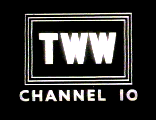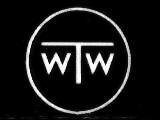 Opening of
Channel 7 at St Hilary
Opening of
Channel 7 at St Hilary


"We like to think of ourselves as a TV company that makes profits, not as a profit-making company that does television"
Alfred Francis, TWW Managing Director"If promise is never preferred to performance then every television station would go on for ever"
Lord Hill
The contract was offered in September 1956, although the ITA did ask for the financial involvement of NBC to be removed, and this stake was transferred to the Liverpool Post and Echo group. Nevertheless, NBC did advise TWW on transmission, programme planning, research, sales, advertising and promotion techniques.
Both ATV and Associated Rediffusion attempted to agree affiliation agreements. Wills offered an arrangement similar to the one they had made with Granada, where they would take a percentage of TWW's income, and also underwrite the profit level. This might have looked attractive, but it more clearly violated the requirement not to be financially independent as given in the Television Act. The eventual deal was struck with Granada, which made some sense, as they were already providing a service to the northern coast of Wales, including some programmes in Welsh.
Ten locations were surveyed for the transmitter, the final choice being St Hilary Down. This ran into planning permission trouble with the local airport, worried about dangers to air navigation from a 750 foot mast. These were dismissed after a public enquiry, subject to some conditions, but they had caused a four month delay. Further trouble with the aerial, of the same type that had caused problems at Black Hill in the end delayed the service until 14 January 1958 from studios at Pontcanna, Cardiff.
The launch went well; after 3 months there were over 300,000 homes regularly watching. After this run-in period local production was required to increase to 15%, to include 200 minutes per week of Welsh that had been agreed.
The success continues, as the audience increased to 673,000 homes by the end of 1960. They were generally well thought of by the ITA, with their programmes and coverage of their split region receiving praise. Studios were opened in Bristol on 20 November 1960, with the best switching arrangements available, allowing the local news programme to be presented from each studio location.
 Opening of
Channel 7 at St Hilary
Opening of
Channel 7 at St Hilary
The ITA had placed the condition that 40% of the non voting shares in Harlech should be available to TWW if they wished. Derby declined, but did sell them the Cardiff and Bristol studios for £1.6 million, along with the stocks of programme material and unused film rights. They even sold the last six months of their franchise to Harlech for £500,000. A special dividend was paid to their shareholders, along with stock in the new company which took over the non-broadcast interests of TWW. It isn't fully known if the early eye-splitting logo used by Harlech was a favour to Dolland and Aitchison, one of the TWW (Enterprises) subsidiaries.
St Hilary 10V 14/01/58 St Hilary 7V 15/02/65 (for Welsh language programmes) Presely 8H 26/01/64 * Arfon 10H 26/01/64 * Bala 7V 26/07/67 Moel-y-Parc 11V 26/01/64 *
* - date of WWN acquisition.



